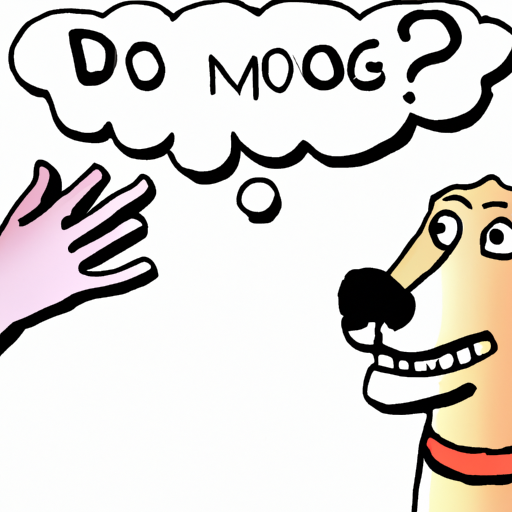Understanding Your Dog’s Behavior
As a caregiver to your furry friend, you might have observed your dog mouthing you or other people. This behavior, while sometimes alarming for new dog owners, is actually quite common and usually harmless. Dogs use their mouths for exploration and interaction, much like how we humans use our hands.
Mouthing is most common in puppies, but adult dogs may also engage in this behavior. This is their way of familiarizing themselves with their surroundings and expressing their feelings. It’s their language of love, curiosity, and sometimes, stress.
Why Does Your Dog Mouth You?
There can be a number of reasons why your dog may be mouthing you:
- Playfulness: Dogs, especially puppies, are playful creatures. They love to engage in fun activities, and mouthing is one way they express this playfulness.
- Affection: Your dog might be mouthing you simply because it loves you. It’s their way of giving you a doggie kiss!
- Anxiety: If your dog is anxious or stressed, it might mouth you as a way to seek comfort.
- Attention-seeking: Dogs are social animals. They crave your attention. If they feel ignored, they might mouth you to grab your attention.
How to Respond to Your Dog’s Mouthing
Here are some strategies you can adopt to respond to your dog’s mouthing:
- Positive Reinforcement: Reward your dog when it behaves appropriately. This will encourage it to repeat the good behavior.
- Distraction: If your dog starts to mouth you, distract it with a toy or a treat. This will redirect its attention.
- Training: You can train your dog to stop mouthing using commands like “No” or “Stop”.
Remember, patience is key when dealing with your dog’s mouthing behavior. It might take some time for your dog to understand and respond to your commands.
When to Seek Professional Help
While mouthing is usually harmless, it can sometimes escalate into biting, which can be dangerous. If your dog’s mouthing becomes aggressive or it starts to bite, you should seek professional help. A professional dog trainer or a veterinarian can provide you with the right guidance and strategies to manage your dog’s behavior.
FAQ
1. Is mouthing a sign of aggression in dogs?
No, mouthing is usually not a sign of aggression in dogs. However, if it escalates into biting, it could be a sign of aggressive behavior.
2. How can I stop my dog from mouthing me?
You can stop your dog from mouthing you by using positive reinforcement, distraction, and training.
3. Should I punish my dog for mouthing?
No, you should not punish your dog for mouthing. Instead, focus on positive reinforcement and training.
4. When should I seek professional help for my dog’s mouthing?
If your dog’s mouthing becomes aggressive or it starts to bite, you should seek professional help.
We hope this article has shed some light on why dogs mouth their owners and how to handle it. Remember, understanding and patience are key when dealing with your pet’s behavior.



